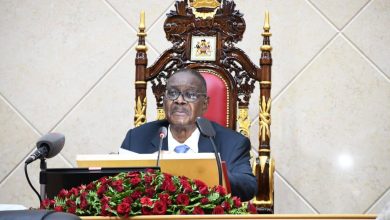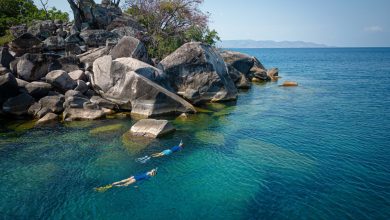Make this World Tourism Day turning point
This Saturday, September 27, the global community will take time to commemorate World Tourism Day, designated by the United Nations to reflect and celebrate the contribution of tourism to global development.
For the 2025 World Tourism Day, the UN World Tourism Organisation has unveiled ‘Tourism and sustainable transformation’ as the main theme to highlight the transformative potential of tourism and its capacity to serve as a force for positive change.
In his message for the day, UN Secretary General António Guterres has described tourism as “a powerful driver of transformation” as “it creates jobs, fuels local economies, supports infrastructure and contributes to development far beyond GDP [gross domestic product]”.
Malawi will, as usual, join the global community in celebrating the World Tourism Day. In fact, the month of September is designated as Tourism Month to emphasise the importance of tourism.
For a long time, tourism has been rated as a low- hanging fruit with the potential to boost foreign exchange earnings to a game-changer. It is one sector always touted as one with the potential to complement the contribution of tobacco, the country’s main export crop.
Tourism together with agriculture and mining plus manufacturing are at the heart of the Malawi Government’s ATM+M strategy to stimulate economic recovery and growth. It is also prioritised in the Malawi 2063 (MW2063), the country’s long-term development strategy for its contribution to socio-economic development, job creation and poverty reduction.
Malawi is endowed with naturally beautiful places, but the missing link has been creation of enablers that should drive traffic to such destinations.
I recall a public lecture titled ‘Solidifying the gains: Everything. Everyone’ immediate-past Minister of Tourism Vera Kamtukule, PhD, delivered in partnership with Mzuzu University earlier this year, which highlighted failure to coordinate marketing of tourism as the biggest challenge stifling the growth of the industry in Malawi.
During the 2025 Malawi International Tourism Expo in April, stakeholders in the tourism industry also urged the Ministry of Tourism to exploit technology and target global tourism power houses to amplify the initiative to achieve its marketing objective.
Ernie Lindsey, an American novelist whose novel Sara’s Game became a USA Today and Amazon Kindle bestseller, is credited with the quotation “numbers don’t lie, people do”.
I reflected on this quote upon seeing World Tourism Council data that showed revenues from tourism for Malawi and her neighbours in 2023 from international tourist visits. The gap between us and our neighbours is so wide. Zimbabwe reaped $215.1 million (an equivalent of K377 billion), Zambia generated a staggering $901 million (about K1.6 trillion) and Mozambique raked in $327 million (about K573 billion) while Malawi had a paltry $35.5 million (about K62 billion). But by 2028, Malawi’s tourism earnings are projected to rise to around $268 million.
In 2024, Malawi was projected to earn $42.9 million (about K75 billion), a 20.7 percent jump. Not sure though how much of the earnings practically trickle into the Malawi economy as some players undertake all payment transactions abroad in facilitating tourist deals. This is one area worth looking into.
Every time I see Malawi trailing in such matters one question that bothers me is why do we fail to attract more tourists and compete with regional neighbours such as Zambia, Tanzania, Mozambique, South Africa, Zimbabwe and others?
Malawi needs $600 million (about K942.6 billion) annually to bring in fuel, but generates just around $1 billion (K1.75 trillion) in forex every year against an annual import bill of $3 billion (about K5.2 trillion).
Tobacco, the main contributor in the foreign exchange basket, contributed $395 million (K691 billion) while in 2023 it was $282 million (about K493.7 billion) and this year it has hit $517 million (about K905 billion) for the first time since 2003.
Recently, there have been efforts to address some regulatory shortfalls, including the passing of the Tourism Act 2025 that replaced the 1968 Tourism and Hotels Act to provide a modern framework for the sector’s development and regulation, lack of supporting infrastructure has been one glaring disappointment. The Malawi Institute of Tourism, too, has been upgraded to Malawi College of Tourism to enhance development of human resource to support the sector’s growth.
But, as I write, the road network to tourism destinations such as Nyika National Park, Lake Malawi and others is not in good shape. Driving between Machinga Boma and Liwonde, then Mangochi-Monkey Bay and later connecting to Golomoti on my recent trip, the condition of the roads made me conclude that a self-driving tourist would make a U-turn thinking they are lost. Battered is an under-statement to describe the condition of the cited roads. They simply don’t fit to be called roads. Period!
Initiatives, including the lifting of visa requirements for visitors from 70 countries that include the UK, China, Russia and Southern African Development Community as well as Common Market for Eastern and Southern Africa States are encouraging. But more still needs to be done.
The fresh water Lake Malawi is one huge advantage if it can be backed with some infrastructure development, especially access roads, airports and attractive tourism products that can be well packaged.
This year, the mood has been subdued by the September 16 General Election fever, but still let us celebrate the National Tourism Month and World Tourism Day by reflecting on the challenges and propose solutions.
Together we can exploit the potential tourism has and take it to another level.




